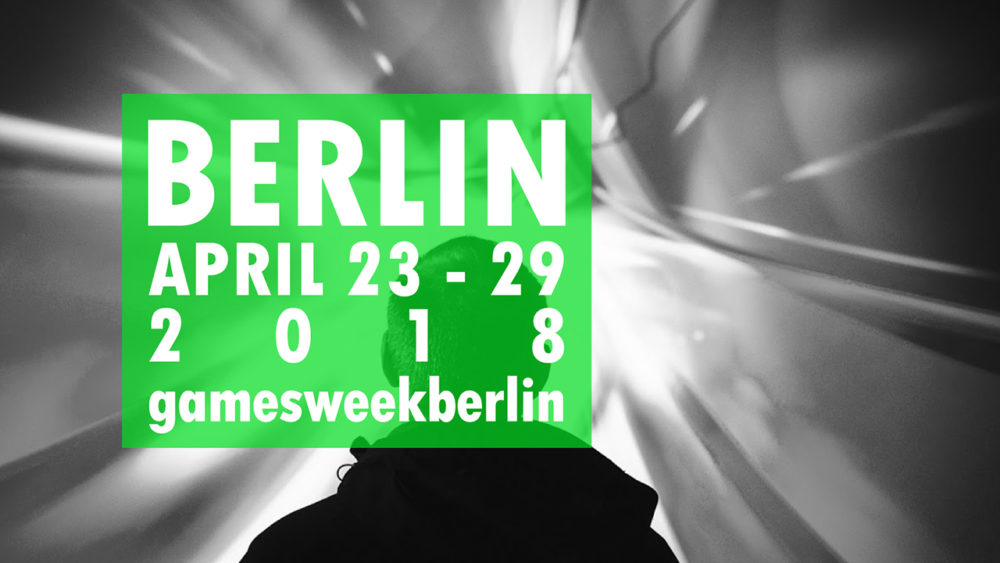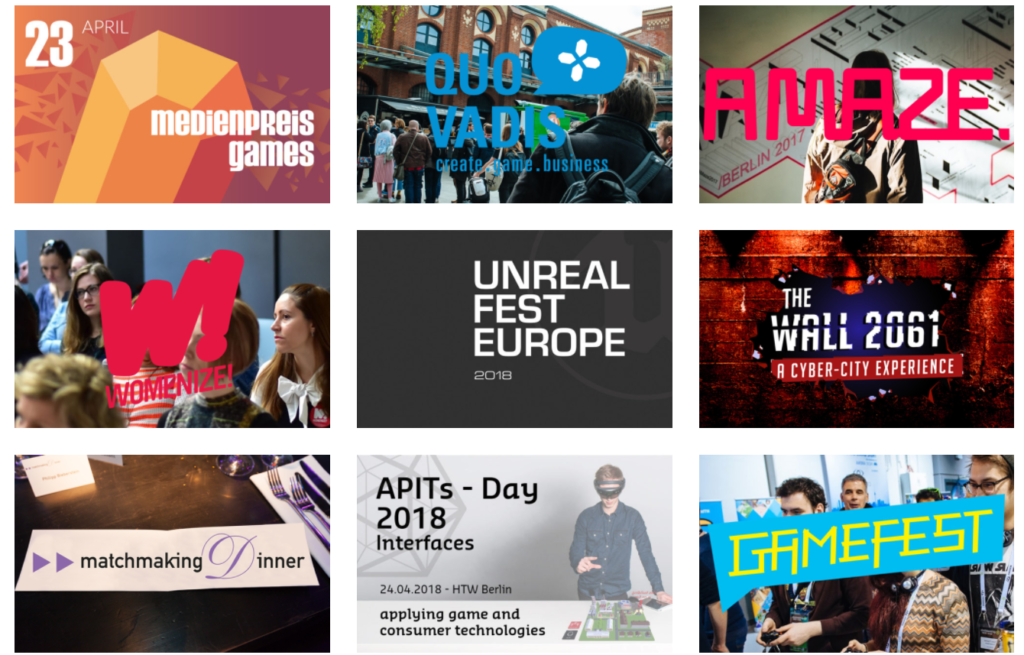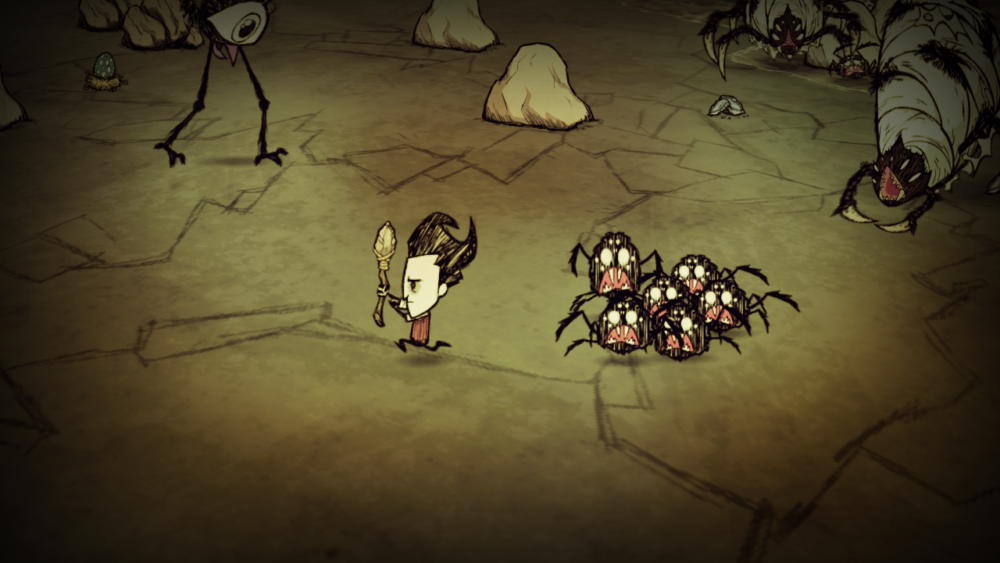SXSW Special: A selection of recommended sessions
More talks and panels on one day SXSW than we at Booster Space can bring up in one year. Here’s a small selection of what really stuck.
Virtual Reality and autonomous mobility. Playful event art. Sharing economy. A revision for code of conducts in Social VR. How quantum computing will change the world. Interactive art installations and VR showcases en masse. Blockchain, blockchain, blockchain.
It’s hard to decide which panels and keynotes to go when the choice of speakers and sessions is sheer endless. But if I have to say what was most impressing so far, I guess it was the Sadiq Khan’s keynote. Sadiq Khan is the first Muslim mayor of London. As a politician and former civil rights lawyer, his speech was deeply political (of course!) and personal, too. Imagine you really have to take lot’s of shit as a liberal Muslim who advocates for fairness. Just read the comments below his SXSW YouTube video, and you can imagine what people like him have to cope with every day.
His main concern: The crisis of globalization, the disconnect and disillusionment of many communities, the deep sense of unease which lead to Brexit, Trump, you name it. However there was this underlying optimism that we can use technology for good, once we find a common understanding of how to use and regulate it. I know, this has got little to do with games and VR and business to business. But if you find the time check out his keynote and tell me what you think.
SXSW Special: Ready Player One
Steven Spielberg’s new movie Ready Player One was one of the hot topics at this year’s SXSW in Austin, Texas. People lined up hundreds of meters to get a seat for the world premiere of the Metaverse blockbuster. However, the reason for the festival buzz is not the quality of this decent action fun flick but sentiment.
Mister Spielberg himself joined a cheering crowd in Austin’s Paramount cinema. Writer Ernest Cline talked about the production in a fireside chat the day after, explaining his affinity for Spielberg, video games and Sci-Fi („Sci Fi explains tech from a human perspective“).
Yes, Ready Player One is definitely a SXSW highlight, and I bet it will be successful at the box office and beloved amongst many fans. Why? Because of the appreciation from Hollywood for video games. It feels good that the great Steven Spielberg pays tribute to the medium. The Ready Player One VR experience they showcased was a blockbuster in itself, with fans and professionals queuing Berghain style.
Ernest Cline wrote a book that everyone knows who is working in the games industry. The novel is an endless sequence of video game references and shows Cline’s deep understanding of nerd/pop/mainstream culture. The film is the most recent addition to a row of cultural products like Netflix’ hit show Stranger Things. What we get is a warm feeling of familiarity. A campfire for gamers, tabletop fans and Amblin enthusiasts.
That, of all things Steven Spielberg is adapting the novel, shows that the time is ripe for video game movies to become finally acknowledged, again, somehow. Because SXSW is a festival for tech and pop culture, it’s the perfect place for kicking off Ready Player One and that’s worth a celebration. I only hope the movie will live up to this.
Blogging about #gamesweekberlin (April 23-29, 2018)
Our flagship event is coming up! We were super immersed in all things preparations and finally found a second to update you guys here. We have an awesome new lineup of events coming up from April 23-29, 2018, in Berlin. Special cudos to our veteran partners, Quo Vadis, A MAZE. and Matchmaking Dinner to team up with us again! Gamefest finds a new home at our new #gamesweekberlin base, Säälchen – in cooperation with the Computerspielemuseum.
We are excited about our almost lost sister, Womenize!, to come back with new power: 2-full days of workshops, talks and networking for emerging talent in games and tech. Grand news is that we can celebrate a world premiere in Berlin: Unreal Fest Europe joined the show with a three day developer conference.
All updated are to be found on the new blog section of gamesweekberlin.com/blog
The best way to stay up to date and not miss out on discounts, event updates and highlights of the week is our brand new #gamesweekberlin newsletter.
Subscribe here:
Less power for the players can make games better
One of our speakers at the Intel® Buzz Workshop Berlin is Valentina Tamer, a game designer, writer and artist working for game developer Daedalic Entertainment. Her talk approaches Disempowerment Fantasies – a concept we frequently encounter in video games, but rarely even notice. Our Social Media Manager Sandy talked with Valentina Tamer about why turning players into almighty gods isn’t necessarily a powerful game design decision.
 Disempowerment in Don’t Starve: When it gets dark you better be prepared (img source: Klei Entertainment)
Disempowerment in Don’t Starve: When it gets dark you better be prepared (img source: Klei Entertainment)

Valentina Tamer
Valentina, can you describe what your talk is about?
My talk is about disempowerment in video games. So to say: If the game designer takes power away from the player. Video games are often considered as power fantasies and they are often designed as a power fantasy.
But having more power in video games, isn’t that the intriguing thing about them?
My thesis is that it limits the potential of video games. There are a couple of modern games in the last, let’s say ten years, that have actually played with taking power away from the player in order to create richer experiences. In my talk I’m going to look at how you would define and create a feeling of powerlessness or the loss of power in a player; what you can do with that, what kind of situations you can create that way and then I’ll talk about different sciences to make sense of how disempowerment works in video games. For example: Media theories, sports psychology, learning psychology and game theory. I’m going to set up some theses why a player would even want to feel disempowered in a video game.
There is the danger that if you disempower the player too much they are going to be frustrated
Would you say that you prefer games with a design based on disempowerment?
Not necessarily. The thing is: You don’t need to base your game on either power or disempowerment. In fact, games that are designed to be power fantasies can also become better if you include disempowerment at specific points. So I wouldn’t say that you have to do either-or, but I enjoy games that use disempowerment in interesting ways, also in emotional ways. But it’s also a matter of mood. Sometimes I like games that are power fantasies, but there is a tendency that games that play more with disempowerment will draw my interest, because they might be something new and interesting to see.
Could you name examples of games with disempowerment?
Amnesia the Dark Descent was very interesting and the ways it used disempowerment. Then Undertale had very interesting elements in there and there is a really obscure game, called “Mondo Medicals”. It’s kind of a spacial puzzle game, a first-person puzzle game where you get instructions on what you have to do, like ‘follow the arrows’ to get to the goal, but the instructions are lying to you. It’s very creepy, oppressive and intimidating. Don’t Starve – basically all survival games are playing with lots of disempowerment.
 Waking up in a nightmare – Amnesia the Dark Descent is a classic example for disempowerment in games (img source: Frictional Games)
Waking up in a nightmare – Amnesia the Dark Descent is a classic example for disempowerment in games (img source: Frictional Games)
What was your greatest moment in a video game with disempowerment?
I remember a couple. For example, when it gets dark in Don’t Starve, the shadows come out and if you don’t have lights to keep them at bay, you’re going to die. The first time I played it, nobody explained that mechanic to me ahead of time so I was just trying it out on my own and it got darker. I didn’t know what to do, it was a really close call and I felt helpless, like: ‘What am I supposed to do? There are shadows and the music is creepy, my character seems to panic, what am I supposed to do?’ And I think the first time I just died, but it was a powerful experience and it was all the nicer when I then realised what I must do in the second round. That was powerful.
But situations like these can also be frustrating for players. What do you have to pay attention to while designing games with disempowerment?
There is the danger that if you disempower the player too much they are going to be frustrated, won’t enjoy the game and just put it away. But this is, first, a matter of target audience: How much frustration do they expect in this game and how much frustration do they want? There are hardcore games like Dark Souls that are infamous for being hard, but people choose these games and expect a hard and really frustrating game. But if you release a mobile game that has cute graphics, looks like it’s easy to play and then is frustrating or the progression of how frustrating it is isn’t very balanced, then you get a problem.
Could you elaborate on that?
It’s basically all about defining your target audience, defining your advertisement: How do you want to present the game? How do you form the people’s expectations? But expectations are also formed within the game. You must stay within the expectations or if you go outside of them – make it in a clever way. It’s a matter of testing whether it works or not. The amount of frustration has to be adjusted to the kind of game you’re making, what situation the player is in at that moment and how frustration progresses, because the level of challenge in a game is rarely always the same. It has to fluctuate to create a pleasurable experience. Playtesting is a thing you have to do as well, it’s about fine tuning. You can effectively plan everything ahead. You have to be aware of the problem and test it and always remember who you’re making this game for.
 Dark Souls is infamous for being hard, but players choose it for this reason (img source: FromSoftware)
Dark Souls is infamous for being hard, but players choose it for this reason (img source: FromSoftware)
Beyond casual and hardcore gamers, is there a more specifically defined target group for this kind of games?
No, actually not – because disempowerment mechanisms belong to every game genre. Horror games, survival games and narrative games are especially big on disempowerment, so people that like these kinds of games would be the target group. Also, people who are interested in Indie Games that experiment with new kinds of gameplay. Edutainment can also benefit from using disempowerment.
What makes games with disempowerment mechanisms appealing for players?
There are lots of different reasons. There are nine different reasons, which I will name in my talk. But as a summary one could say that it is attractive to players, because it enrichens the game experience and makes it more rewarding. It puts you deeper into the moment and it gives you the opportunity to handle subjects in a manner that pure power fantasies cannot cover.
Need more input? You can buy Valentina’s eBook “Directing Games: Fantasies of Disempowerment” on Amazon or directly meet her at the at the Intel® Buzz Workshop Berlin, the free one day conference focusing on tech and content trends in the games industry. See you there!
A summit where VR meets Film & TV – during the Berlinale
EFM VR NOW Summit – about different kinds of moving image. Half a day conference where Virtual Reality meets film and television. Customized for the needs of entertainment professionals. With high profile speakers in packed sessions and networking. During the European Film Market at the Berlinale Film Festival. Early Bear tickets only 99 Euros.
Learn how film, television and immersive media like Virtual Reality and 360 video are coming together. Get excited by fantastic stories and inspiring opinions of international VR figure heads about how entertainment advances today.
Who is there?
Matthew Collado (Littlstar), USA
Eddie Lou (Sandbox VR), China
Anika Giese (Axel Springer SE), Germany
Ditti Bürgin-Brook (La Siala Entertainment), Switzerland
Paul Bouchard (WIDE VR), France
Oli Lane (VR Concept), UK
Soon we will be able to announce another highlight speaker, coming from a renowned Canadian immersive media production company. Stay tuned for more.
Get your Early Bear ticket, for only 99 Euro.
[/tatsu_text][/tatsu_column][/tatsu_row][/tatsu_section]Topics and speakers at Intel Buzz Workshop – a one day conference for free
Check out the Intel Buzz Workshop at Games Science Center in Berlin. Listen to international game developers from Ubisoft Blue Byte, Creative Assembly, Deadalic and more. Win awesome prizes, and showcase your own game. Saving the best for the last: it’s for free.
The Intel Buzz Work is a free, one day long conference focussing on tech and content trends in the games industry. It is custom tailored for game developers and all those people who love games as much as we do aka very, very much.
Until now we are proud to announce the following speaker line up:
Thomas Miller, Senior Build Engineer (Creative Assembly)
Marc Braun, Producer (Ubisoft Blue Byte)
Valentina Tamer, Game Designer & Writer (Daedalic Entertainment)
Oscar Clark, Game Evangelist (Unity 3D)
Alexander Pieper, Technical Director (Studio Fizbin)
Thomas Bidaux, Crowdfunding Expert (ico Partners)
Adam Streck, Neurobiologist and VR developer (DZNE/neomento)
Eric Jannot, CEO & Creative Director (waza! games)
There will be more.
Pre-register for free: buzzworkshop.booster-space.com
Want to exhibit your game in our featured game expo?
Fill out this submission form.
And stay tuned for the schedule.
[/tatsu_text][/tatsu_column][/tatsu_row][/tatsu_section]International Local Heroes of VR
The VR NOW understands itself not only as a platform for the best international producers of VR, AR, MR and 360 video. It’s also about the people who drive the diverse local community in Berlin and Brandenburg, mostly smaller companies who work on an large and international level and want to showcase their latest successful work.
Sara Lisa Vogel and Daan Kip (VR Base) started the session on our second stage. Daan explained how he managed to create a 50 Mio Dollar fund – the XR Base fund – to support great early VR and AR entrepreneurship. He and Sara then pointed out the creative and business potential of companies and upcoming talents from Europe.
Pedro Lopes (Hasso Plattner Institute) showed the amazing latest research development in EMS wearables. With attached electric muscle stimulation gloves (and more wearable devices soon), objects and walls will be part of the haptical experience.
Peter Hu (Auctoreal Inc.) explained what it means to live from VR development in the world’s probably most interesting (and hyped) market – China. Susanne Dickel is co-fonder of INTO.VR, specialized in 360 journalism. Their holistic approach on production and storytelling is fit for all major platforms for VR.
Max Sacker and Iuolia Isserlis are the two heads of Anotherworld VR. Right before they came to speak on the VR NOW Con, they won the prize for Best Immersive Experience at the VR Core Awards in China for their Horror VR Experience Kobold. In 30 minutes they showed what it means to create suspense and horror without torturing the user.
Find these and more exciting talks on YouTube.
With: Sven Bliedung (SLICE), Marcus Ritter (Interlake), Sönke Kirchhoff (INVR.SPACE), Gayatri Parameswaran (NowHere Media), Greg Louden (3rd Eye Studios), Pawel Gajda (Carbon Studio), Christian Glessner (Hololux), Gerda Leopold and Sebastian Endler (both Amilux Filmproduktion), Lina Reinsbakken (Nornstudio) and of course the fabulous Thomas Bedenk (Exozet) and his friends.
Photo by Shane Pilon
What we gain (and divulge) in the new realities
In 2016 the VR NOW Con keynote of Alysha Naples was all about making VR for better human interaction. Make VR pro social, less commercial and anti-isolating, she said. Everybody was moved, everybody agreed.
This year Ian Forester, CEO of VR Playhouse, hold a similar critical note. While we wonder what we in the new realities, with immersive video and another level of information that will guide us through the world, Ian asked what we divulge.
The keywords here are: #Big Data, #Subconsciousness, #Depth. Scary, isn’t it? In real life that translates into make societies drift away even further apart, with social engineering, manipulated elections, Facebook bubbles and presidential fake news bullshit bingo (I hate the term “fake news”, we use it too often and help the guy who claims to be its inventor).
But we also wanted to show off a little. What is VR capable of right now, why is VR such a great medium, how will it define our entertainment, gaming, storytelling, industry training and information in the near future.
Max Salomon (Black Dot Films VR) and Maria Courtial (Faber Courtial) showed how to produce high quality immersive content for the old media e.g. National Geographic and ZDF. Laura Jeffords Greenberg told us what content is popular on the LittlStar platform.
Dominik Kaeser is the inventor and team lead of Google Earth VR and gave an in depth look into the development process of one of the most popular and smoothest VR experiences you can get right now.
Gabo Arora (Lightshed) talked about using VR for making people empathic, sharing also uncomfortable experiences about wars, crisis and the people suffering from it.
Kristian Costa-Zahn (UFA LAB) and Oliver Schreer (Fraunhofer Heinrich Hertz Institute) shared how they are going to start with volumetric video, a major advancement in making films you can actually freely move in.
Marcus Kühne is Audi’s head of VR and has set up more than 100 point of sale experiences for Audi customers who can compile their own cars from scratch, as well as making fun experiences like Audi sandbox.
Our guests from China (Yiming Niu is president of the VRAR Association of China, Rebecca Liu is head of VR Core, China’s biggest association for VR creators) gave insights about the Chinese market, what content is wanted by the consumers, what content is produced by the creators.
Two roundtable discussions concentrated on the American market, especially Hollywood (with Chris Sibley from Phenomenon Media, Andrew van Wyk from River Road Entertainment and, again, the amazing Laura Jeffords) and the trinity of markets in Europe, China and the USA (with Chris Sibley from Phenomenon Media, Drew van Wyk from River Road Entertainment, Sven Bliedung from SLICE and Yiming Niu from VRARA).
Check out the VR NOW Con & Awards 2017 playlist on YouTube to see the talks you missed.
Photo by Grzegorz Karkoszka











